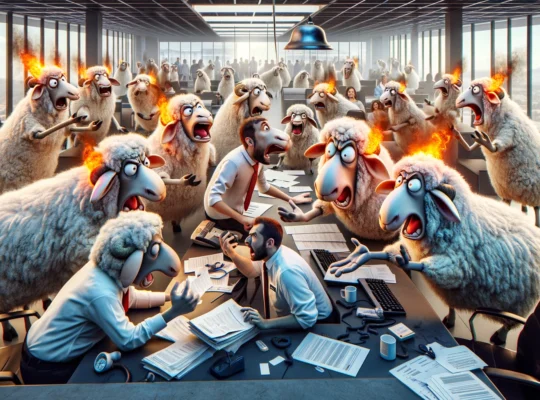Flick through the pages of history or scroll through your social media feed, and one thing remains consistent: propaganda. While the term often conjures images of Cold War posters or wartime radio broadcasts, the truth is that propaganda, in its many forms, has always been with us. Its ubiquity begs the question – why is propaganda everywhere, especially in state mechanisms, and why is it an enduring tool?
Propaganda Defined
At its core, propaganda is information, especially of a biased or misleading nature, used to promote a political cause or point of view. It’s about shaping perceptions and, in many cases, guiding people towards a desired action or belief.
The Utility of Propaganda for States
1. Unifying Narratives: Propaganda helps create a cohesive national identity. By presenting a unified narrative, states can foster patriotism and a collective sense of purpose, essential for societal stability.
2. Maintaining Control: Propaganda is a tool for control. If a state can shape what its citizens believe, it can guide their actions, ensuring stability and diminishing dissent.
3. External Diplomacy: Propaganda isn’t just for domestic audiences. States use it to shape international perceptions, forge alliances, or vilify adversaries.
The Changing Face of Propaganda
While the essence of propaganda remains, its mediums have evolved. From murals in ancient kingdoms to Twitter threads in modern republics, the tools of propaganda have kept pace with technology.
The Inherent Human Connection
At the heart of propaganda’s enduring presence is human psychology. We are, by nature, storytelling creatures. Narratives shape our understanding of the world, and propaganda feeds into this:
1. Confirmation Bias: People tend to seek information that confirms their pre-existing beliefs. Propaganda often provides this, reinforcing existing viewpoints.
2. Emotional Resonance: Effective propaganda taps into emotions – be it pride, fear, or hope. Emotional messaging is often more persuasive than dry, factual communication.
Will It Ever End?
The short answer is no. As long as there are agendas, narratives, and audiences, there will be propaganda. While its forms might evolve, its essence will remain:
1. Information Overload: In our digital age, the sheer volume of information makes it hard for individuals to discern truth from fiction, making them more susceptible to propaganda.
2. The Rise of Echo Chambers: Online algorithms create echo chambers, where individuals are only exposed to information that aligns with their beliefs, creating fertile grounds for propaganda.
3. State Imperatives: States, by their very nature, have agendas – both domestic and international. Propaganda serves as a tool to advance these agendas.
Conclusion
Propaganda, for better or worse, is woven into the fabric of human society. Its endurance is a testament to its effectiveness and its deep roots in human psychology. Recognizing propaganda for what it is remains the first step in navigating a world filled with competing narratives. In the age of information, perhaps the most valuable skill is not just the ability to find information, but the wisdom to discern it.
















1 Comment